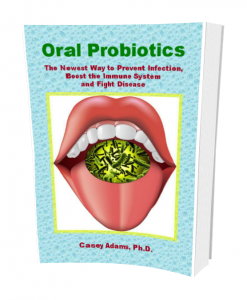Tooth Loss Linked to Cognitive Decline
Scientific research confirms that losing teeth is linked with greater risk of cognitive decline. Whether it is from tooth extraction or loss from another cause, both have been linked to loss of memory and cognition.
In this article
Tooth loss patients tested
Medical scientists from Sweden’s Halland Hospital tested 1,147 people between 60 and 96 years old. They performed an oral examination on each person and then conducted cognitive function testing. Each person also filled out a questionnaire with other details.
The researchers found that the fewer teeth the patients had, the worse their cognitive function on average.
Noting that some of this trend should be based upon age – as people tend to lose teeth as they age – the researchers conducted another analysis after eliminating the age factor from the equation. The researchers also eliminated education as a factor – as education level related directly to cognitive function.
Again, the researchers found that losing ones teeth is associated with reduce cognitive function.
Other studies link tooth loss to memory decline
In a 2013 study from Japan’s Hirosaki University School of Medicine studied 462 elderly Japanese people. They found that those with fewer teeth had significantly increased risk of having poor cognition – based upon the Mini-Mental State Examination (MMSE) testing.
This study also eliminated age, education and intellectual activity from their calculation.
Another study – from Japan’s Nara Medical University – tested 3,696 people together with 335 people who scored low on memory scores – again using the MMSE test. This research found that those who had lost a significant number of teeth had up to double the risk of low cognitive scores.
Furthermore, those who had tooth loss the longest (edentulous period) were three times more likely to have low MMSE scores. This was comparing those with tooth loss more than 15 years with those who had tooth loss less than 15 years.
Yet another Japanese study – this from 2010 – studied 3,061 elderly persons 65 or older. Those with between zero and 10 teeth remaining had a 71% increased risk of lower mild memory impairment compared with those people with 22-32 teeth remaining.
Why does tooth loss result in cognition loss?
While a firm explanation of this association has yet to be made, Nara University researchers and other research have connected the risk of periodontal disease to tooth loss.
The research shows about half of all tooth extractions are due to periodontal disease. Connecting periodontal disease with cognitive decline has been difficult, however. Systemic inflammation has been postulated. Cytokine increases have been considered.
Another theory suggests that periodontal mechanoreceptors are decreased when teeth are extracted, and these sensory receptors may result in memory and learning difficulty.
Periodontal disease and blood vessel damage
Another possibility – touched on by the point about systemic inflammation but also joined to the fact that periodontal disease is also linked with carotid artery disease – is that blood flow to the brain is being interfered with from the blood vessel wall damage – both at the carotid and among the tiny blood vessels that feed brain cells.
Other research has indicated this blood vessel wall damage is likely produced by the endotoxins secreted by the pathogenic bacteria residing in the gums – the same bacteria that are causing the periodontal disease.
REFERENCES:
Nilsson H, Berglund J, Renvert S. Tooth loss and cognitive functions among older adults. Acta Odontol Scand. 2014 Jan 30.
Saito Y, Sugawara N, Yasui-Furukori N, Takahashi I, Nakaji S, Kimura H. Cognitive function and number of teeth in a community-dwelling population in Japan. Ann Gen Psychiatry. 2013 Jun 24;12(1):20. doi: 10.1186/1744-859X-12-20.
Okamoto N, Morikawa M, Okamoto K, Habu N, Iwamoto J, Tomioka K, Saeki K, Yanagi M, Amano N, Kurumatani N. Relationship of tooth loss to mild memory impairment and cognitive impairment: findings from the Fujiwara-kyo study. Behav Brain Funct. 2010 Dec 31;6:77. doi: 10.1186/1744-9081-6-77.
Okamoto N, Morikawa M, Okamoto K, Habu N, Hazaki K, Harano A, Iwamoto J, Tomioka K, Saeki K, Kurumatani N. Tooth loss is associated with mild memory impairment in the elderly: the Fujiwara-kyo study. Brain Res. 2010 Aug 19;1349:68-75. doi: 10.1016/j.brainres.2010.06.054.
















